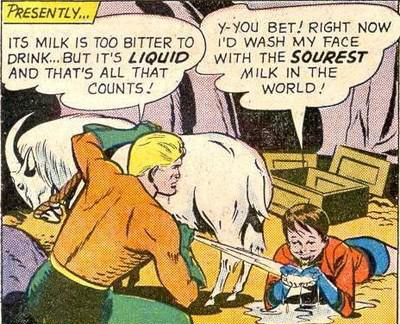Lately I've been thinking. What is the way we perceive fun? In what ways do we indulge in it? What is its meaning, and why do we yearn for it? When does it turn into addiction or work? Video-games and gaming are ripe for this type of analyzing.
Art, or drug?
When we read books, watch movies or play games, our brain gets stimulated and the connections we make while thinking and virtually experiencing are rewarding. In gaming more than with former arts, since it is a direct consequence of our actions and is generally more frequent and condescending. Heck, games are even rewarding us when we don't deserve it. We stop being satisfied with the fulfilling revelations of our own contemplations and want more of the raw stimulation from the outside. Dumbed down games of today support this kind of mentality in gamers: inducing raw emotions while requiring no creative thinking and little or no reflexes. Games like Farmville (or World of Warcraft in some aspects) go further: people get caught in a cycle of repetitive tasks; upon completing those tasks nothing in the player changes. No involvement other than time was required. The game tells us we are better than some players and worse than others. Being treated like this, we get a false sense of superiority and accomplishment. We are greedy, and the game knows it: the inner hedonistic child gets what it wants, and there is always a new carrot behind the next corner.

This, from my point of view, is when a game stops being an art and becomes a drug. Those of you addicted to gaming, always one step behind the sought-out dose of pleasure you so desperately need, need to recognize what you are doing wrong. It's about attitude towards life itself. Your experience in gaming or any other art is, quite simply, what you make of it. It is highly subjective. So how to make the best of it? Start by comprehending what drives you in the first place.
Art, or sport?
Games started as sports. There is no denying it. In the begining of videogames, it was all about besting the AI or another player. No artistic expression/experience involved. With time though, they became more complex and deep. Games were starting to resemble art. Soon, some of them weren't about competition at all. Today, two main branches are existent in gaming: art games and sport games. Themes and franchises overlap, but these are THE two ways of experiencing interactive fun. Why do I say this? I'll explain.

My awesome MS Paint skills were put to use, and lo and behold, above is the masterful result. It shows the main point of what I'm getting at - games can be whatever we make of them.
Fun = thrill
If we game to PERFECT OURSELVES in more physical ways (often through competition), we game to win. This requires a combination of intelligent thinking and REFLEXES, and a great deal of automatizing various physical/mental processes through practice until they come naturally. Genres like RTS, FPS, platformer and racing come to mind.
If we game to PERFECT THE (ingame) CHARACTER, to hear stories and dream of adventures, we game to experience. This requires a combination of intelligent thinking and EMOTIONS, which is more true to the basic definition of art. Genres like RPG and adventure come to mind.
If we game for the intelligent thinking alone, we seek no improvement of our reflexes and no emotional impact; we game to think. Genres like turn-based strategy and pure logic games like chess come to mind.
Thou speaketh of unintelligible things
Obviously, games cannot be divided like this. 'I use my reflexes when I pop potions in a random role-playing game I like!', you squeak. 'I get emotionally involved when I score some headshots in a loosely realistic reenactment of world war 1.5 or when cops bust me in a prehistoric Need For Speed!', you howl. Well, of course you do. Life is not a formula where all the variables are unambiguous and easily distinguished. Gaming isn't either. It is an imitation of life, exaggerated and mendacious, giving us a glimpse of the truth.
My division of games (art/sport) wasn't an effort to define genres. It was a way of defining the primary motives for experiencing fun, for any kind of playing at all.
We seek in provoked experiences what we lack in everyday life. This is painfully obvious in one major gaming example.
WRPG versus JRPG
Yep, I'm going there. There are so many verbal internet conflicts regarding this topic, yet it mounts down to this: need for balance. Western RPG's are plot driven. This means the story needs to be complex and convoluted but at the same time meaningful and believable. Japanese RPG's are character driven. It's all about emotional connection with little regard for explaining motives or plot details. One is rational with focus on details. The other is an emotional rollercoaster. One comes from a culture with not enough rational/scientific thought. The other comes from a culture burdened by rationality, lacking real human contact and real emotions. Western culture is having fun when exercising rational thought spiced with emotions. Japanese culture is having fun when drowning in surges of various emotions. It may not have been like this 20 years ago, but it is now. Culture always tries to balance itself, as do the people it consists of. While needing an escape from reality, we find it in art.

No conclusion
If you need a conclusion after all I've said, you better read it again.